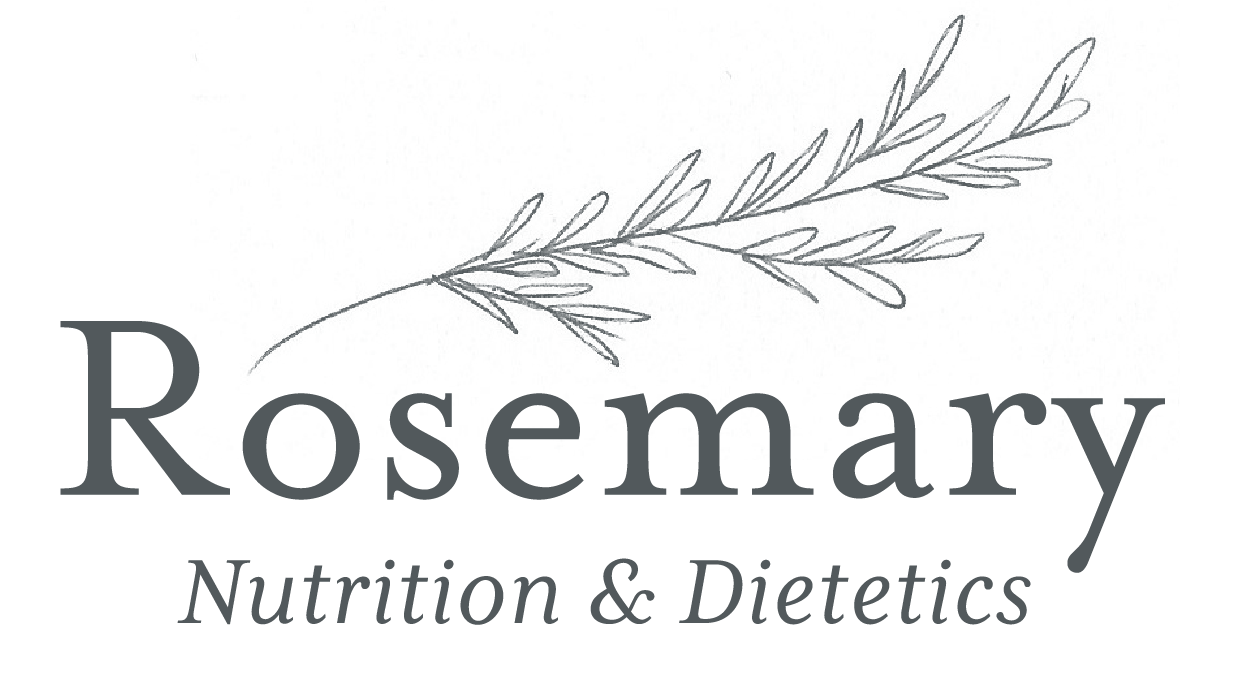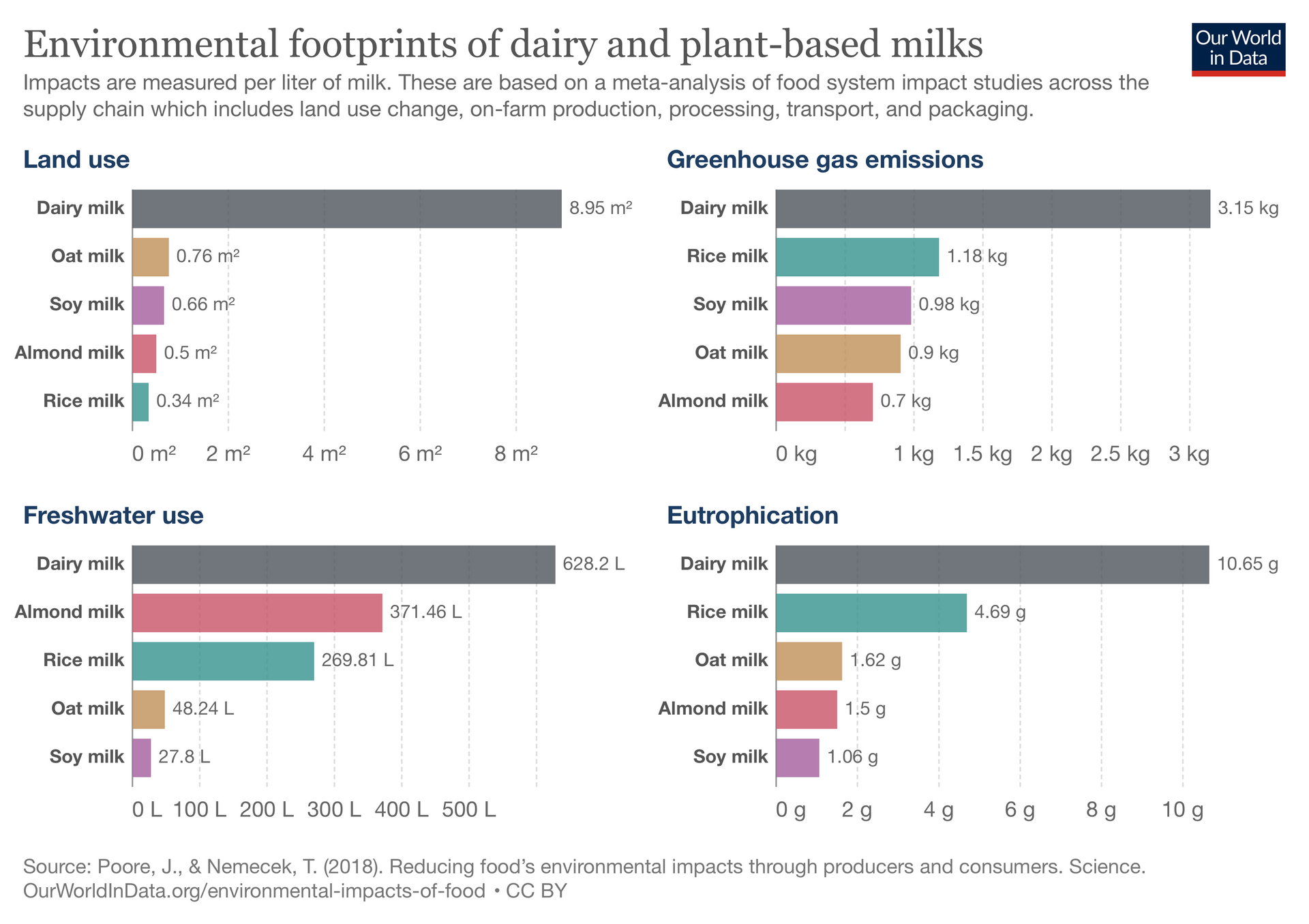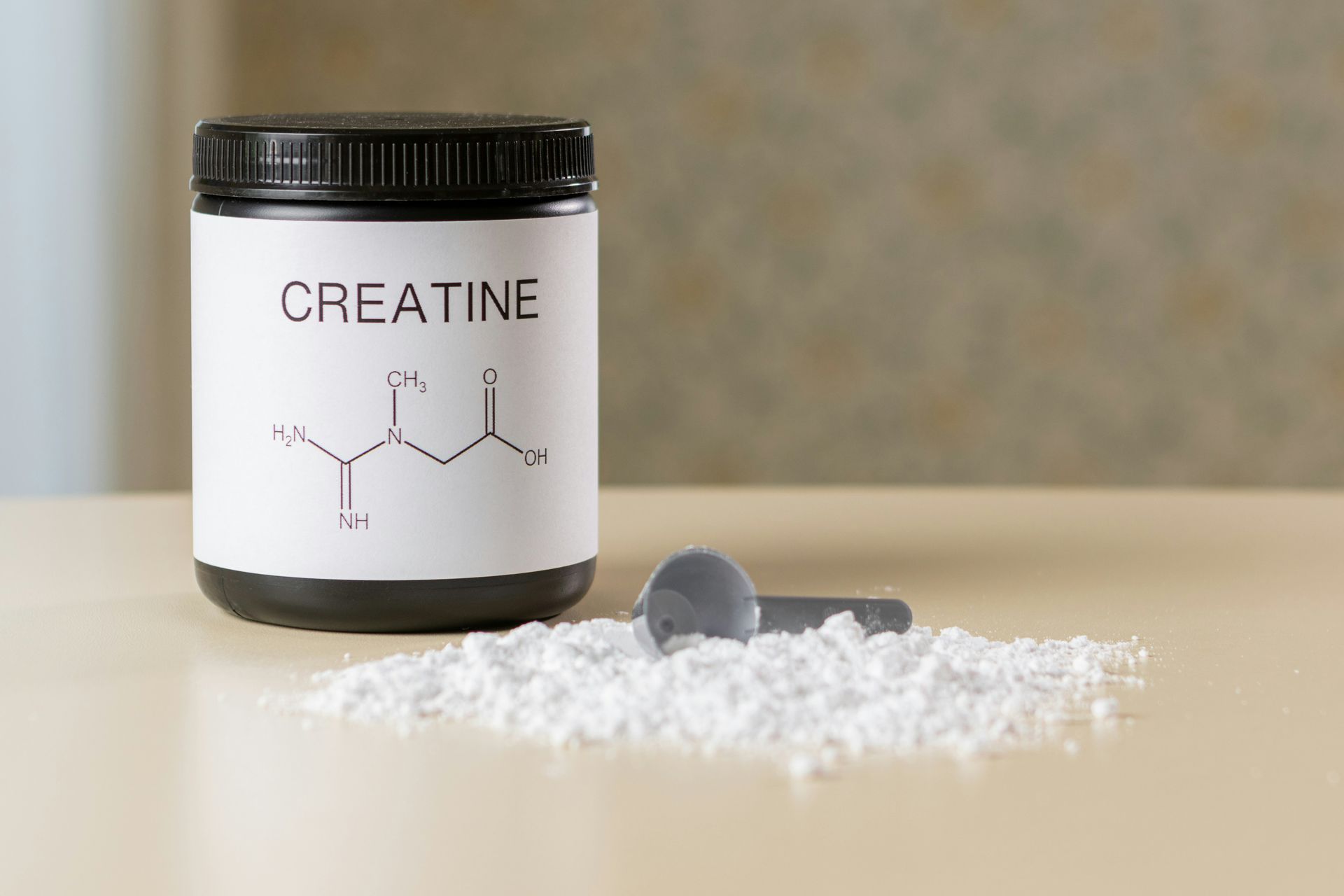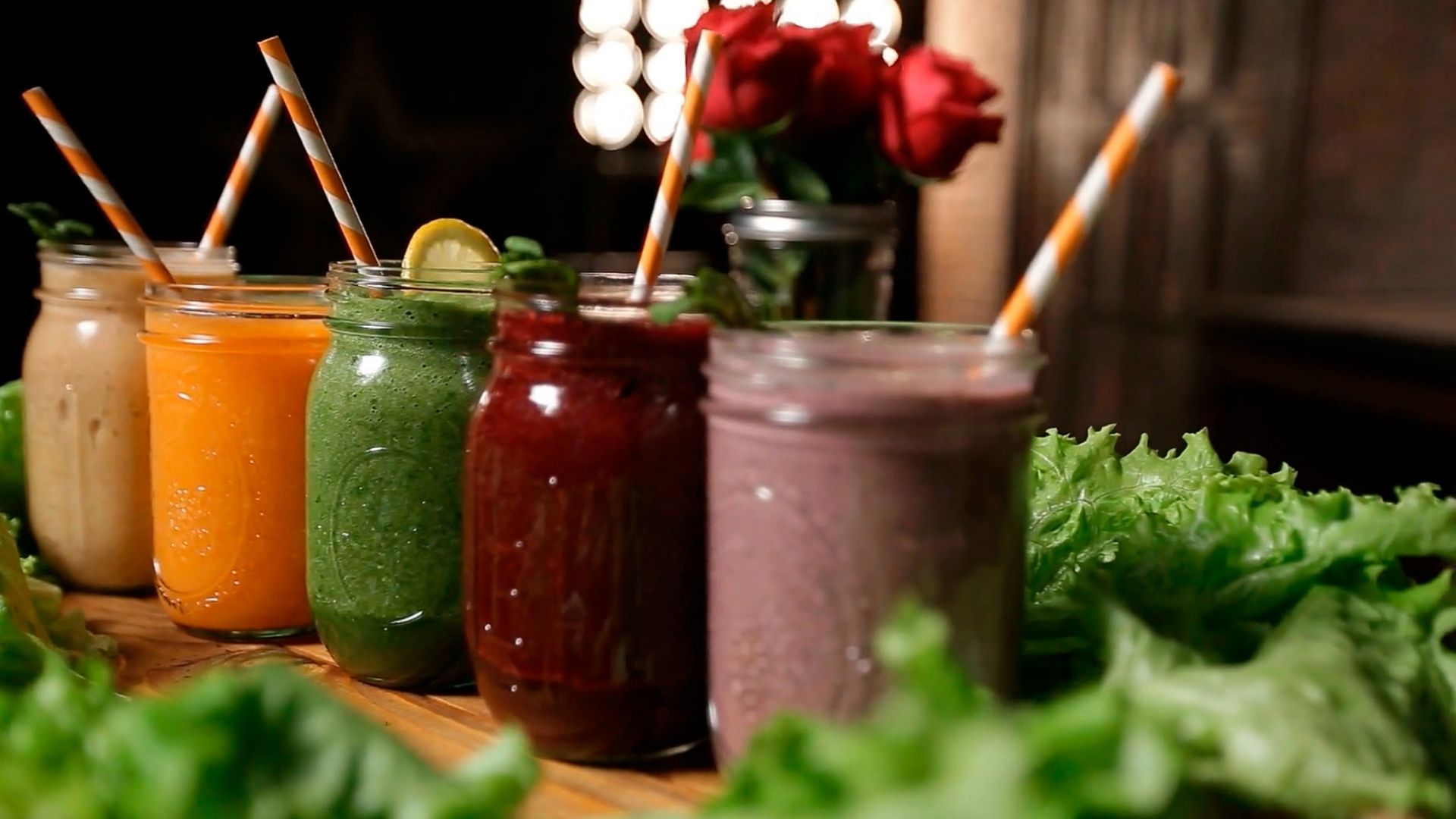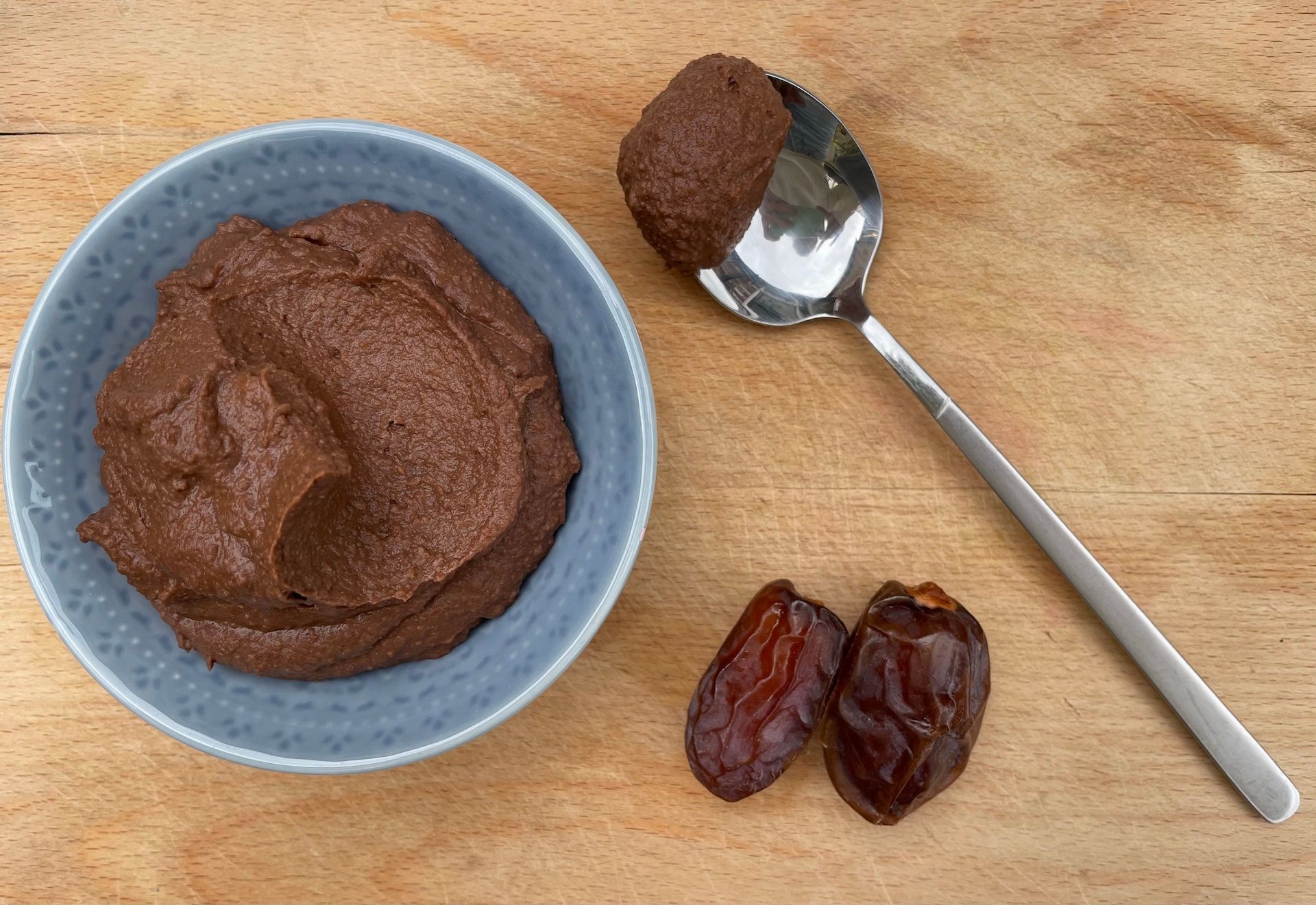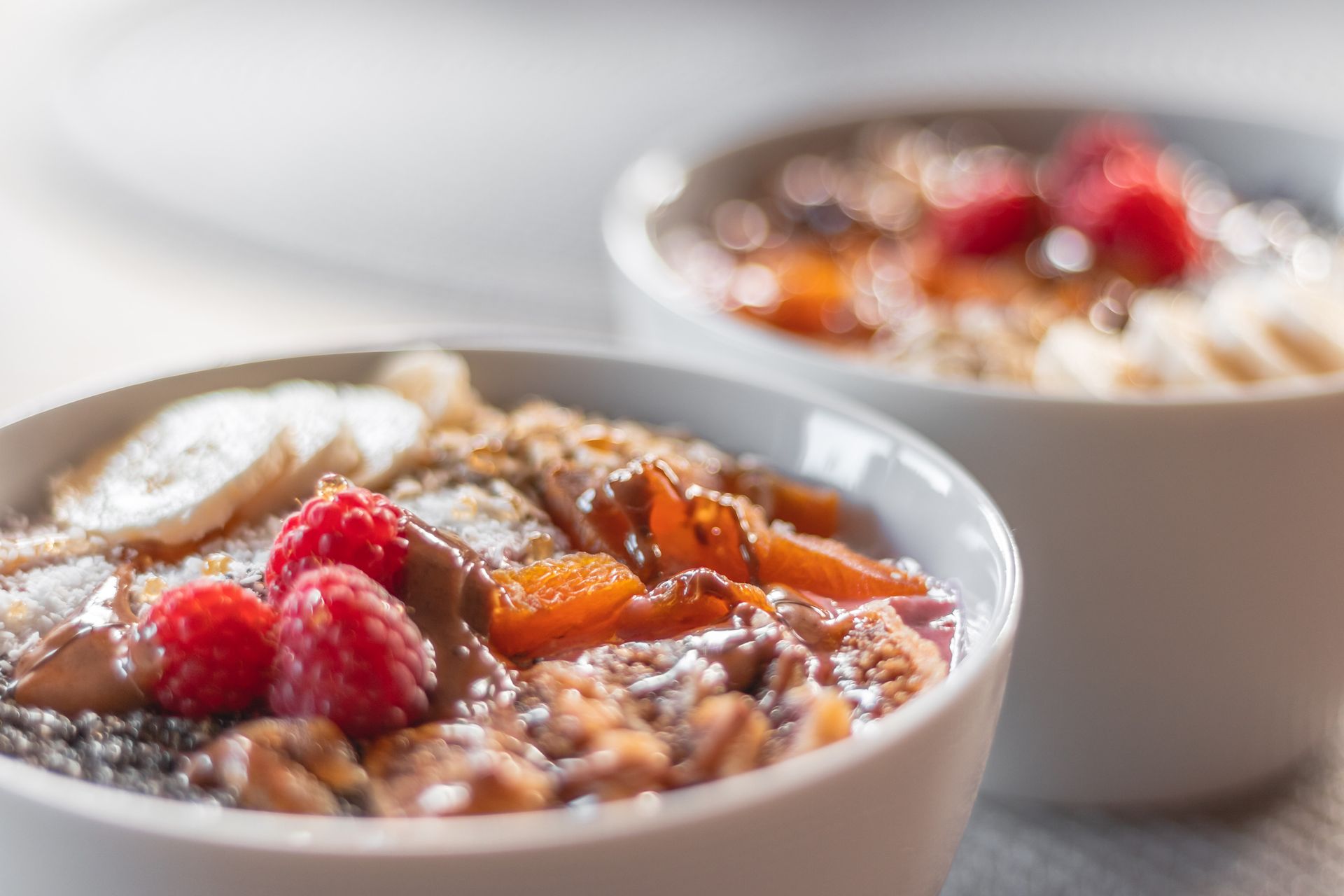Say Hello
Join our newsletter
Join our newsletter
Plant Milks: Your Questions Answered
In the vastly expanding plant-based milk market, it can be difficult to know which to pop in your basket. Here I’ve listed some of the main considerations, as well as answered some of your big questions, to give you a little more confidence when facing the ever-lengthening plant-milk aisle.
What are plant milks made from?
Plant milks are now being made from a variety of plants including legumes, cereals, nuts, and seeds. In this blog we will look at some of the main ones available in the UK today. The processes that turn these plants into milk varies but usually involves soaking, grinding, milling, and straining to produce a milky liquid that is ready to pour over your oats, stir into your coffee, or mix into a plant-based bake.
What are the nutritional differences in the plant milks?
Each plant milk has a unique nutritional profile. If it is protein that you are looking for, soya (3g per 100ml) and pea (2g per 100ml) are the best choices to replace the protein found in cow’s milk (3g per 100ml). Data tells us that cow’s milk it not a significant contributor to dietary protein needs in the UK population however, as we can get plenty from our foods. This means that you don’t necessarily have to go for a high-protein plant milk when swapping out your cow’s milk; although it might help if you have higher protein needs in the case of athletes, the elderly or those who are unwell.
If you’re looking for a lower-energy plant-milk, for example if you are trying to reduce your body weight, you could go for almond (13kcal per 100ml) or coconut (14kcal per 100ml). For anyone looking for a higher energy plant milk, go for oat (40kcal per 100ml), potato (39kcal per 100ml) or soya (33kcal per 100ml). Yes, you saw potato in that list - the new kid on the plant-based milk shelf.
The highest fat plant milk available is hemp. Hemp milk contains unsaturated fatty acids including the beneficial omega 3 and omega 6, so could also be a good option for those who don’t consume fish.
Most plant milks, unless they are organic, have added calcium. This can be an invaluable contributor to your calcium needs on a plant-based diet, as they are fortified to match the level in dairy milk (120mg per 100ml). Very few plant milks provide calcium without other added ingredients, so just look out for those with the fewest if you have concerns over the potential impact of emulsifiers and thickeners on your gut. If you prefer to go for organic versions, and you have the accessibility and budget to do so, just make sure you are getting your calcium, vitamin D and B12 from alternatives food or supplement sources.
What about added vegetable oils – should we avoid those?
Much attention has been focused on the vegetable oil content in plant-milks in recent months. Added oils certainly add more calories, but the small quantities that are present, plus the fact that they are not inherently bad for health, means that we shouldn’t be overly concerned. Of course, if you prefer to go for milks with minimal ingredients, this is never a bad thing. Get familiar with ingredient lists, the higher up the list the oil is found, the more that will be present. In some cases, a small amount of oil is a bit of a trade-off with the tolerability of the milk (as oil is added to help emulsify the liquid) as well as the fortification of important nutrients like calcium.
Aren’t plant milks considered ultra-processed?
Concerns have been raised regarding the potential categorisation of plant milks as ‘ultra-processed’ and therefore bad for our health. Many products that have been through multiple layers of processing end up being high in free sugars, fat, salt, and additives to help with shelf life, texture, and consistency, and these can lead to them being less beneficial for health. Despite this, for many products, a certain level of processing can be beneficial. The processes that turn plant foods into milk can support nutritional intake in some populations, for example providing calcium, vitamin D and vitamin B12 intake, as well as nutrients like protein or fluid. It is crucial to consider the nutritional profile of the final product and what it provides in the context of the overall diet, rather than solely on the level of processing.
Which should we buy?
When picking out your plant milk, go for those that are unsweetened to avoid unnecessary added sugar. Your taste buds will adapt over time! My recommendation is to find which plant milks you enjoy the most. Some people like to have soya on their porridge but oat in their coffee. Different types will behave differently in your meals and drinks, so try a few and find your favourites. If you’d like to minimise your intake of any of the added ingredients in plant-milks, you could opt for some of the following companies, but make sure your diet includes plenty of calcium, plus a vitamin D and B12 supplement.
- Plenish
- Rude Health (look out for the chilled almond milk with added calcium)
- Innocent
Isn’t almond milk bad for the environment due to its water use?
Some plant milks have been criticised for their impact on the environment, and this includes almond’s thirst for water. Let’s set the record straight. All plant milks, including almond, use less land and water, have less
eutrophication effects, and produce less greenhouse gas emissions than dairy. Full stop. So, choose your favourite and rest easy knowing that it is a better choice for our planet than cow’s milk. See the graphs below showing the data we have on the impact of plant milks vs dairy milk.
What about soya and the destruction of the rainforest?
The idea that our demand for soya products is causing deforestation of the Amazon rainforest is misleading. It is true that vast areas of land are cleared for soya plantations, but more than 75% of this is grown to feed the animals destined for our plate, particularly for pigs and poultry. Conversely, 90% of the soya produced for humans to consume directly as soya milk, tofu or tempeh comes from Europe, North America, Europe, or Asia. So how do we reduce rainforest destruction for soya plantations? Reduce our intake of animals raised on Amazonian soya.
In summary, there is no plant milk that I recommend over another. It all depends on your preferences, your budget, and your diet. Having said this, watch out for plant milks coming to the market that have minimal added ingredients but continue to fortify with calcium; these may well provide the best of both worlds. And with so much science telling us that plant-diversity is key in health outcomes, why choose just one plant milk?
Rosie is a plant-based registered dietitian, founder of Rosemary Nutrition & Dietetics, and works both in the NHS and as a freelance dietitian.
You can contact her with any queries via Rosemary Nutrition & Dietetics on rosie@rosemarynutrition.co.uk or follow her on Instagram at @plantdietitianrosie
